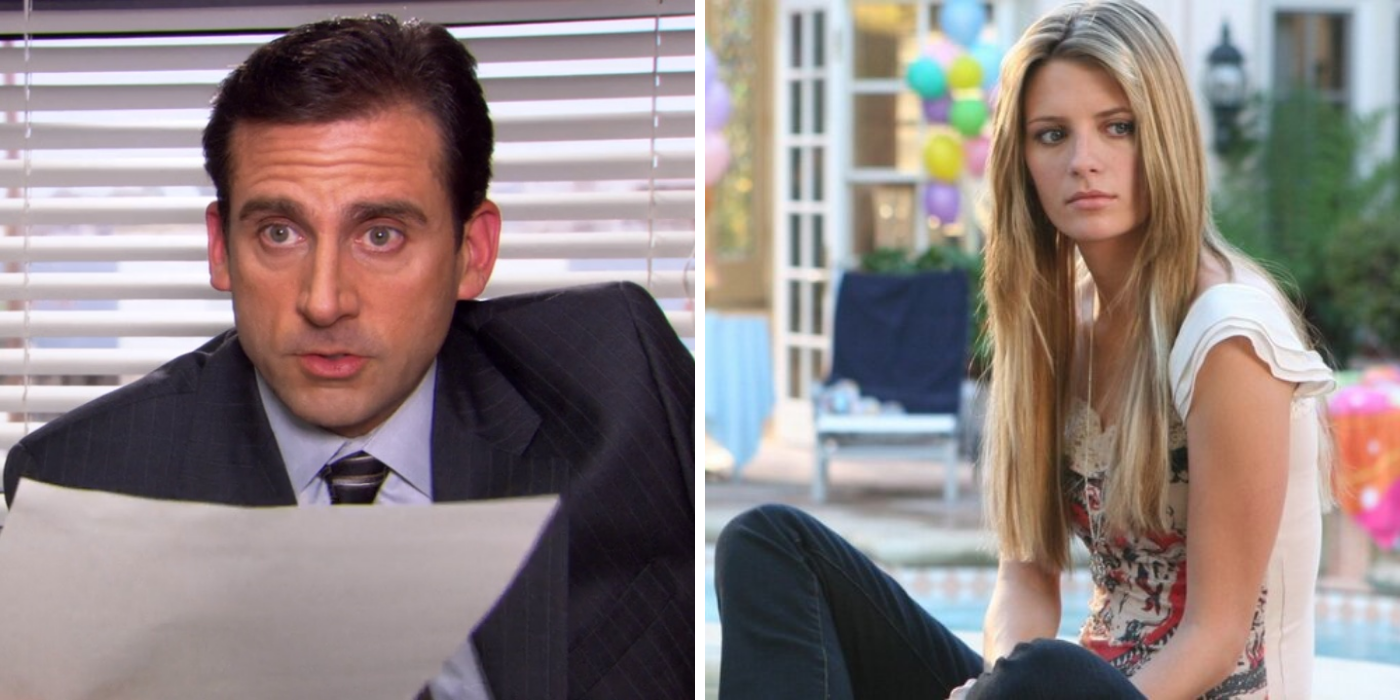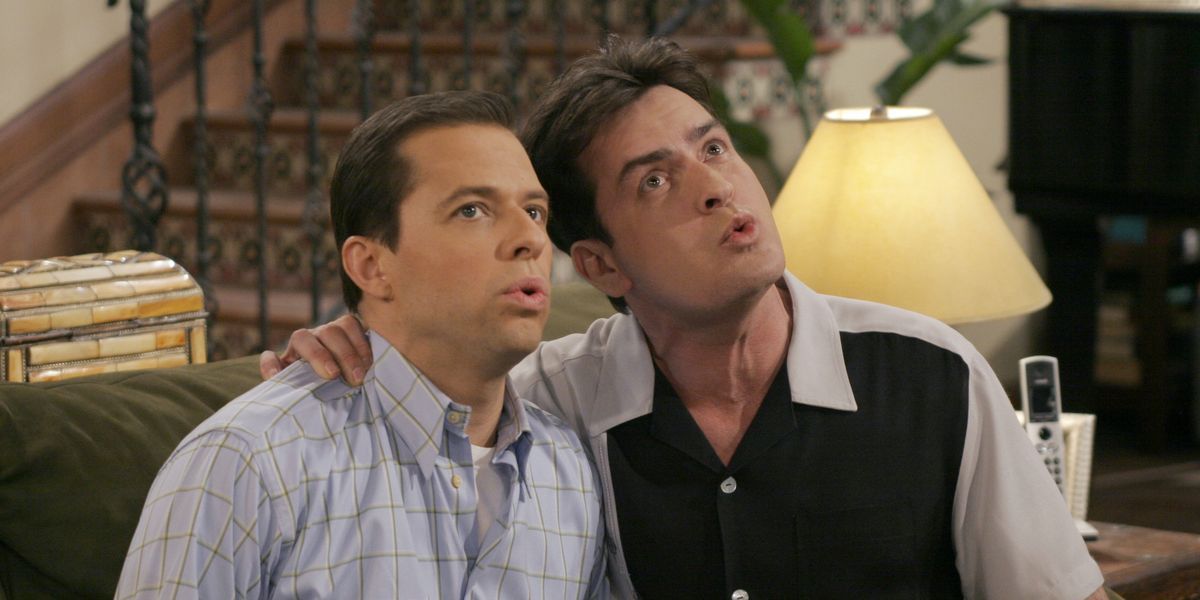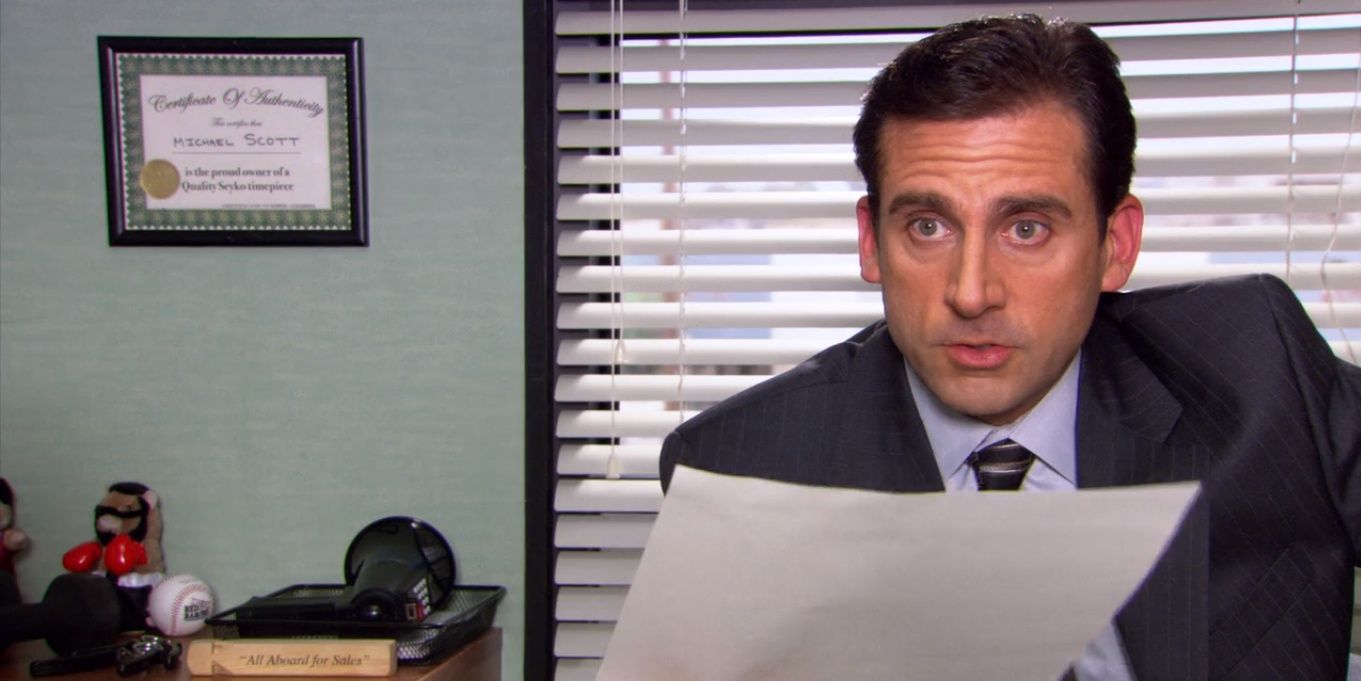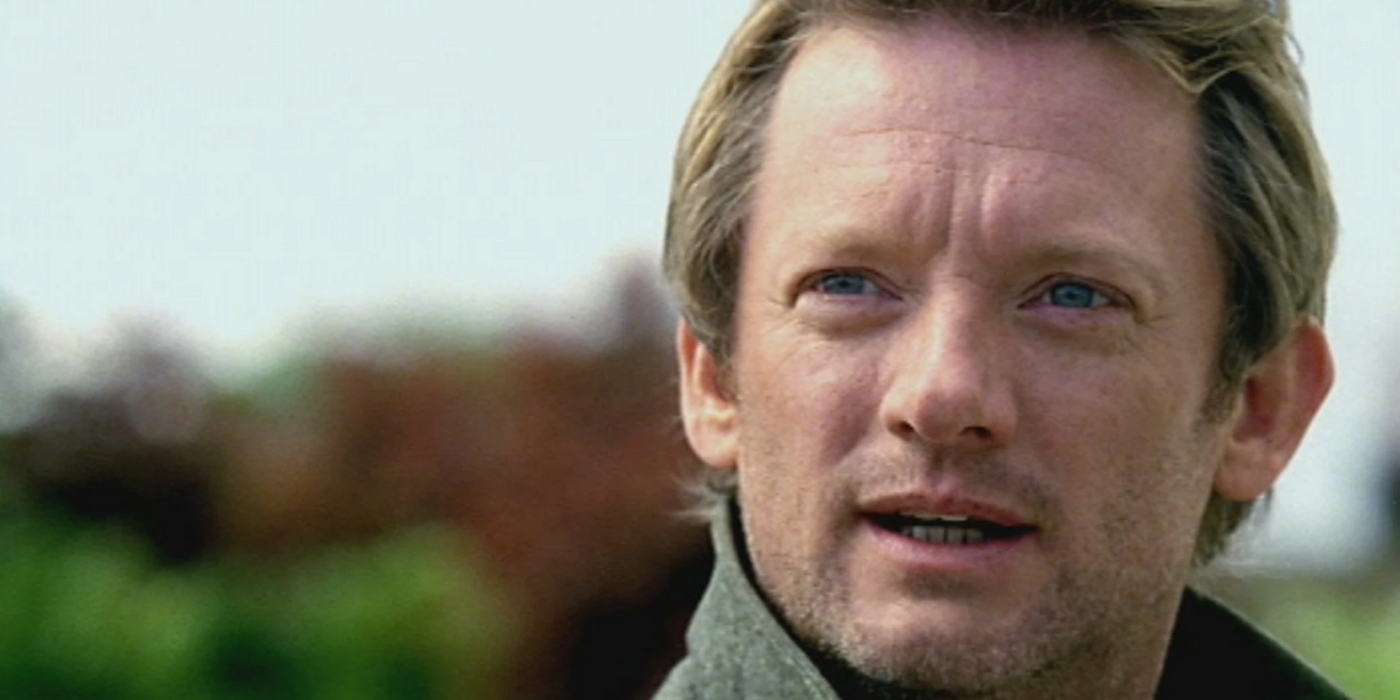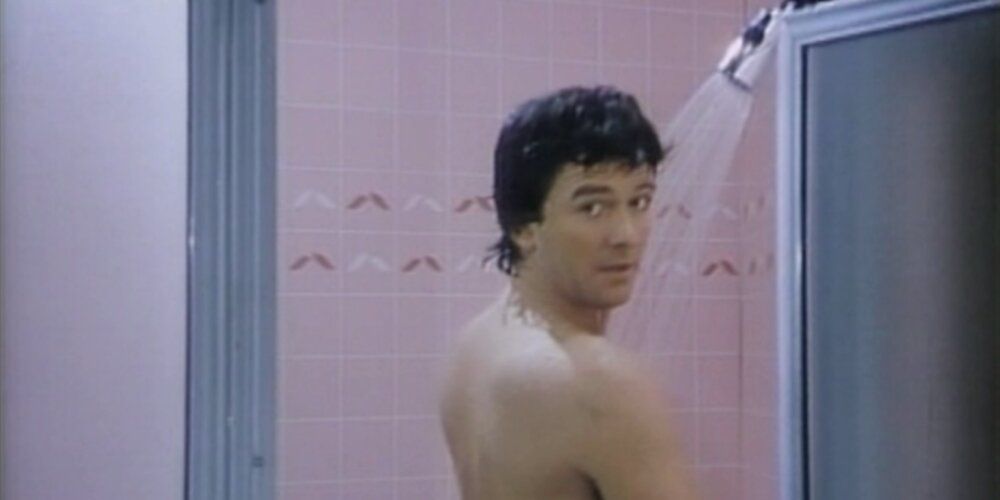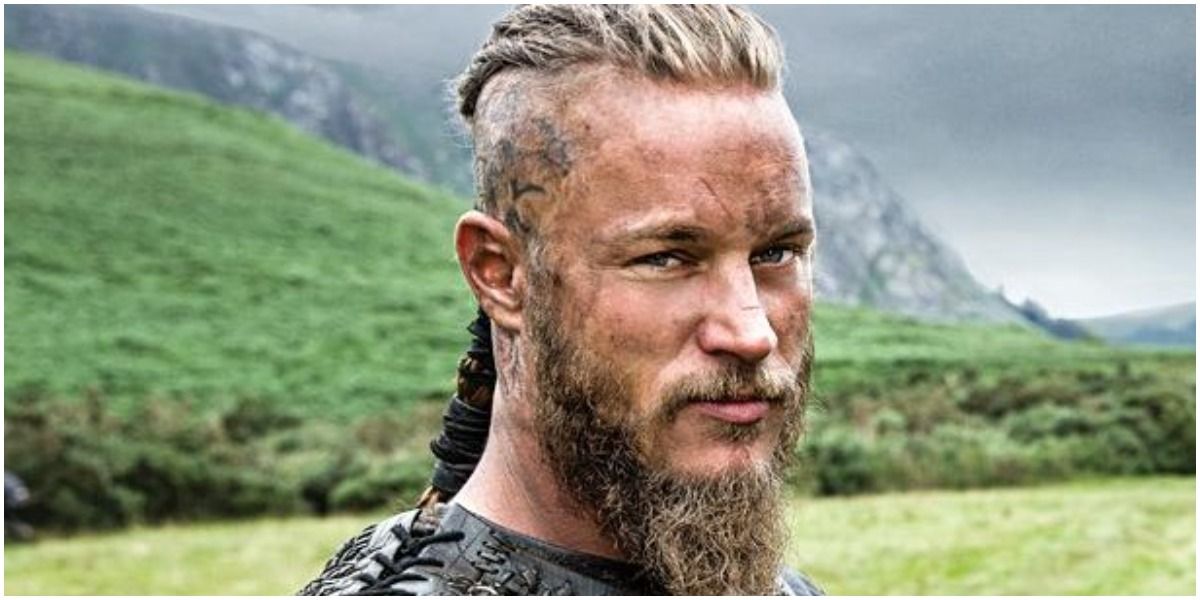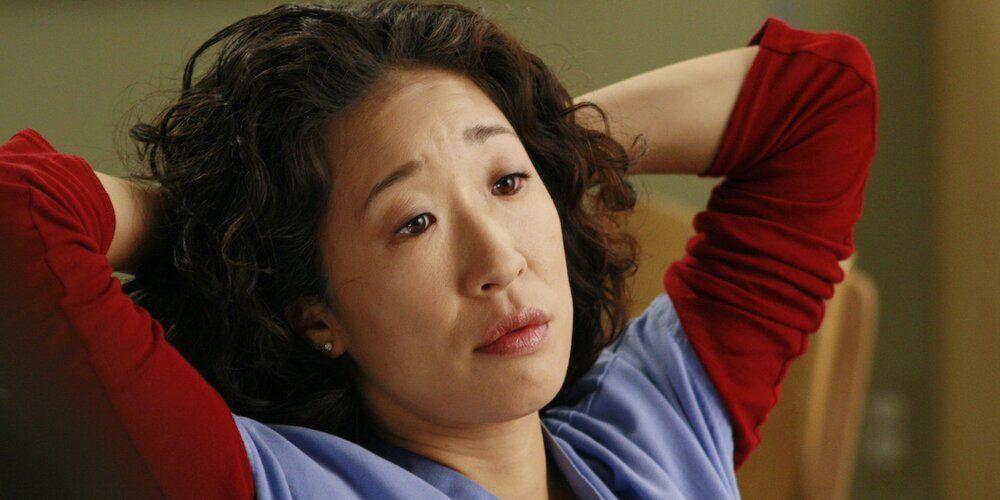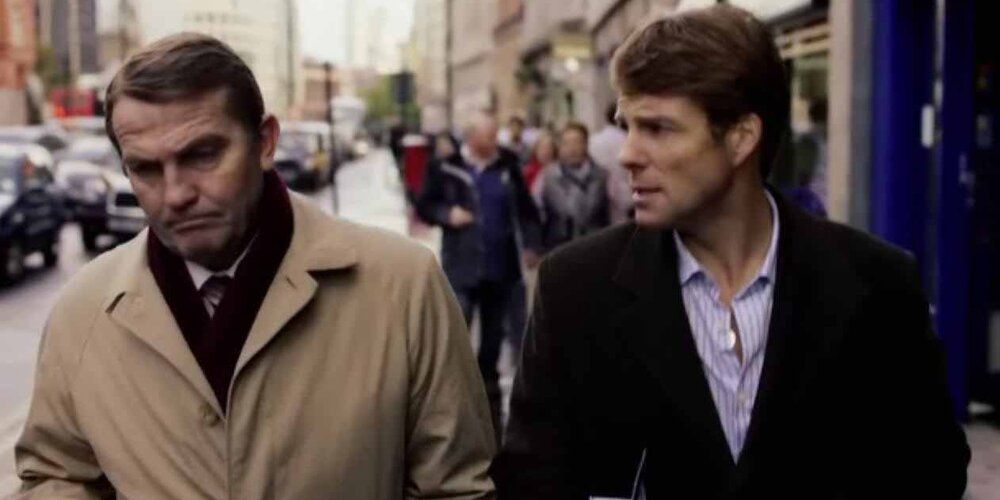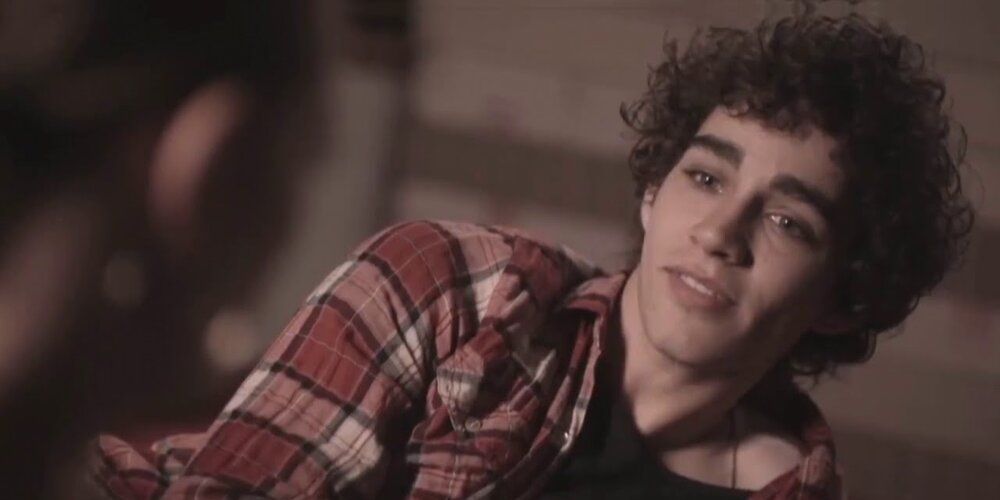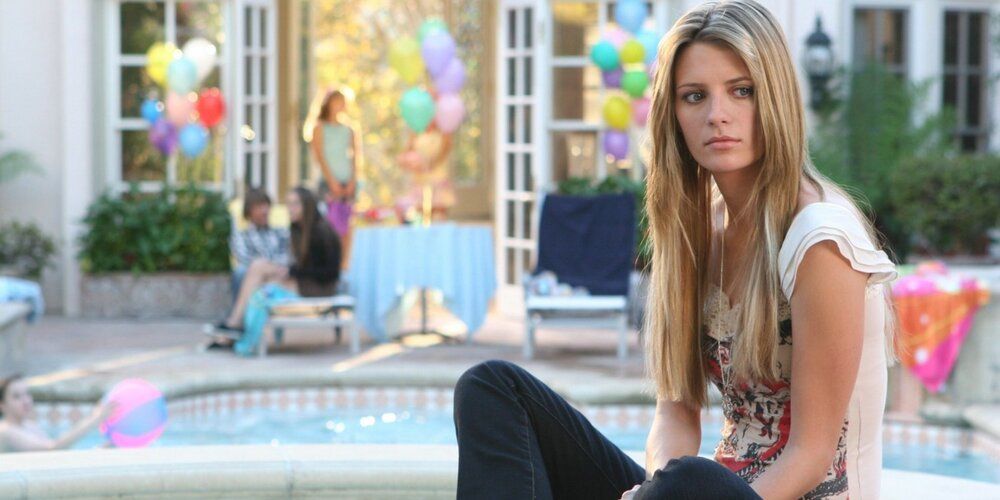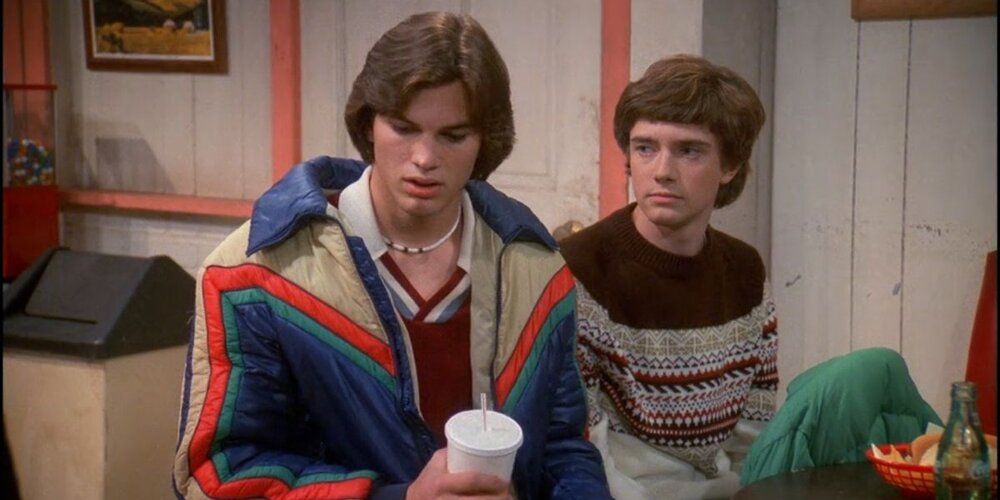It is always tumultuous in a TV show when the star leaves. Whether it happens for off-camera reasons, such as a dispute with the producers, or because of in-story reasons, such as the character dying, leaving, or logically being unable to continue without straining suspension of disbelief, it causes great change.
Sometimes, shows rise to the occasion. Storylines surrounding characters grieving, remembering, and adapting to their new circumstances are remembered highly, and the new characters promoted as leads shine. Other times, however, the star leaving signals the beginning of a decline.
10 Charlie Sheen's Departure Led To Two & A Half Men's Downturn
A case where off-camera concerns led to a star leaving, Charlie Sheen was fired from Two and a Half Men because of a series of public misconducts. It made it difficult for the producers to keep working with him.
The problem for the show was that, with Charlie killed off, the central premise of an ordinary and poor man living with his rich and successful brother no longer applied. A replacement was conceived in the form of Ashton Kutcher's Walden, but many viewers stopped watching, and the show never recovered in ratings.
9 The Office Wasn't The Same Without Michael Scott
The Office was far from a perfect show with Steve Carrell leading its cast, with Seasons 4, 6, 7, and even 1 being considered of a lower quality than the enjoyed Season 5 and universally-beloved Seasons 2 and 3. Nonetheless, it enjoyed popularity and was considered one of the best sitcoms on TV.
After Michael Scott left, the show lost a lot of what quality it had left, with nobody managing to fill the void left by its main character. While the show had other issues, such as a lack of engaging or relevant plotlines, and unpopular choices with characters like Jim and Pam, Steve Carrell's departure is remembered by many as a symbol of the show's declining quality.
8 No Replacement Was As Good As Primeval's Nick Cutter
ITV's answer to Torchwood, Primeval followed a group of government agents as they fought to keep the general public safe from time-distorting 'anomalies,' and the creatures from the past and future that emerged from them. Leading the team was Nick Cutter, a paleontologist who could handle a gun, and with a deep understanding of the anomalies and trauma from his wife's disappearance.
The show was never high-quality fare, but it maintained a somewhat campy enjoyment, and retained a loyal fanbase. In Season 3's early episodes, Cutter was killed by his wife. In Season 3's final episodes, returning character Danny Quinn would somehow lead the team, to be replaced by Matt Anderson. Both lacked the presence of Douglas Henshall's Cutter, and the show never recovered.
7 Patrick Duffy Returned, But Dallas Continued To Decline
Patrick Duffy leaving Dallas negatively affected the show in a strange way. The season after Bobby Ewing left was considered of lesser quality, but was considered good television as Pamela Barnes Ewing and other characters moved on after his death. At the end of the season, however, in one of TV's most notorious twists, Pam finds Bobby in the shower, the whole season having been a dream.
This plot choice negatively impacted fans' opinions of the shows, and despite Bobby's return, the show's writing did not improve, with many citing the shower incident as a sign of the show going downhill. As a result, despite returning, Patrick Duffy's departure led to Dallas becoming bad.
6 Ragnar's Sons Didn't Have As Engaging Plots In Vikings
For the first few seasons, Travis Fimmel's Ragnar Lodbrok simply was Vikings. The show, despite having numerous characters with their own plotlines, revolved around the legendary King. His death in the fourth season was considered an excellent arc, and even the arc following it, with his sons invading England, was enjoyable.
However, the show suffered from a lack of a strong protagonist with Ragnar gone, and the plotlines soon devolved into a civil war between Ragnar's sons. Attempts to create other beloved characters like the Bishop Heahmund stalled, and the show took a hit.
5 Cristina Yang Dealt Grey's Anatomy A Blow
Grey's Anatomy started declining in quality even while Sandra Oh's Cristina Yang remained a principal character. Nonetheless, a big blow to what quality the show had remaining came when the character left in Season 10.
Although Yang was obviously not the main character—that being Meredith Grey—her relationship with Grey and the other doctors was at the core of the show, and she was a major part of it.
4 Law & Order UK Never Recreated Its Sublime Chemistry
Law and Order's Britain-based spin-off initially won acclaim for the sheer chemistry between its cast members. The various actors all clicked with one another, and nowhere was that most clear than in the main partnership between Detective Sergeants Ronnie Brooks and Matt Devlin, who made a perfect crimefighting team.
When Devlin's actor, Jamie Bamber, left the series, he was replaced with Paul Nicholls's Sam Casey. Despite a good performance from Nicholls, the chemistry simply couldn't be replicated, and the show began to suffer for it. Several other cast departures, as a result, would see the show end before long.
3 Nathan Leaving Was The Beginning Of Misfits' End
Misfits was a British comedy-drama following a group of delinquents who receive superpowers from a storm, and the troubles they get embroiled in as a result. A character who quickly became popular with fans was Robert Sheehan's Nathan Young, given the power of immortality, but who was written out of the show after the actor declined to return for a third season.
With Nathan gone, the show began to flounder in the eyes of the audience, despite an intriguing Season 3 premise of the characters getting new superpowers. The storylines petered out, and both Season 3 and 4 were seen as a poor run of the show.
2 Mischa Barton's Absence Led Many To Give Up On The O.C.
At the center of The O.C. was Mischa Barton's character, Marissa Cooper, a member of the Core Four, and the driver of some of the show's most popular and enjoyed storylines. Barton would leave in the show's third season, with her character being killed off.
Although the show's quality was already considered to have declined before then, Barton's death saw an even sharper dip into Season 4, with the show failing to regain any of the ratings it had already lost. Ultimately, following Barton's departure, the show was canceled.
1 That '70s Show Suffered A Double Blow
It is hard enough for a show to handle one major actor leaving, so two at once can devastate many promising productions. When Topher Grace, actor of main character Eric, left That '70s Show, Ashton Kutcher also left, depriving the show of another beloved character.
To try and fill the gap, the character of Randy was created. However, Randy's character was stretched thin trying to replace two very different characters with a single one, and he generated audience loathing by being unreasonably loved by everyone around him to save on storytelling time. Although the finale would be well-regarded, much of the rest of the show's run was disliked by viewers.

